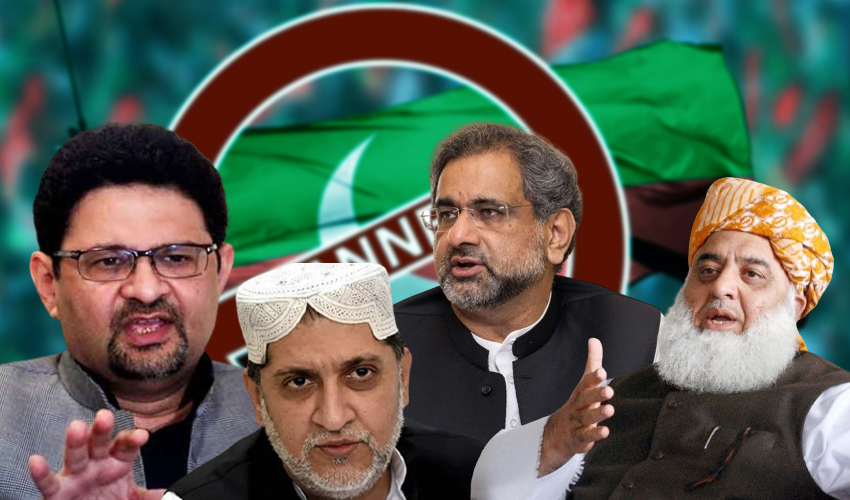ISLAMABAD: The federal government’s recent decision to ban the Pakistan Tehreek-e-Insaf (PTI) has sparked widespread criticism from other political parties, who view the move as a serious threat to democracy and a sign of panic.
Federal Information Minister Atta Tarar announced plans to file a review appeal with the Supreme Court regarding the ban on PTI and certain electoral seats.
Jamaat-e-Islami
Liaquat Baloch, Acting Ameer of Jamaat-e-Islami, condemned the government’s decision during a press conference in Mansoorah, describing it as a “mockery of the constitution, democracy, and the parliamentary system.”
He criticized the government’s “negative politics,” asserting that an unrepresentative government lacks the right to ban any political party.
Baloch emphasized that such undemocratic tactics pose a significant threat to both the constitution and democracy in Pakistan. He warned that the announcement would likely lead to increased instability and negative consequences for the country.
Jamaat-e-Islami (JI) Emir Hafiz Naeemur Rehman also denounced the decision, calling it “fascism” and stressing that such actions have no place in democratic societies. He emphasized the existence of constitutional frameworks and the judiciary in Pakistan.
Jamiat Ulema Islam
Maulana Fazlur Rahman, chief of Jamiat Ulema Islam (JUI), asserted that to resolve the ongoing political crisis, the establishment must refrain from political interference. He stressed that using force against political entities will only worsen the current turmoil.
Fazlur Rahman underscored the importance of respecting constitutional boundaries by all institutions, suggesting that transparent elections are crucial to addressing the nation’s issues.
Awam Pakistan Party
Former Prime Minister and Awam Pakistan Party convener Shahid Khaqan Abbasi questioned the government’s intent behind the ban, highlighting its timing following a court ruling and the government’s delayed response since the May 9 events.
Abbasi acknowledged past mistakes by PTI’s founder but argued against escalating tensions, particularly regarding potential implications under Article 6. He asserted that the government lacks the authority to ban a political party and criticized its divisive approach.
PPP
Senior leaders of PPP Farhatullah Babar and Raza Rabbani openly opposed the decision and expressed surprise at Atta Tarar’s suggestion of ally consultation.
Qaumi Watan Party
The Qaumi Watan Party condemned the government’s decision as non-political and undemocratic, warning of heightened political instability. Aftab Sherpao, Chairman of the party, cautioned that rash decisions rarely yield positive outcomes and urged political opposition to remain within lawful bounds.
Balochistan National Party (BNP)
Sardar Akhtar Mengal, chief of the Balochistan National Party (BNP), strongly opposed the government’s move, highlighting historical bans on political parties and arguing against superficial measures that fail to address underlying issues.
Mengal criticized the government’s inconsistent response to the Supreme Court’s decision and advocated for equal treatment of all political parties under the law.
Human Rights Commission of Pakistan
The Human Rights Commission of Pakistan (HRCP) called for the immediate withdrawal of the PTI ban, describing it as a violation of democratic principles under Article 17 of the Constitution. HRCP Chairperson Asad Iqbal Butt emphasized the PTI’s legitimacy as a political entity and warned of potential political chaos and violence resulting from the ban.
Butt urged the government to rescind its decision promptly to uphold democratic values and prevent further deterioration of political freedoms in Pakistan.


